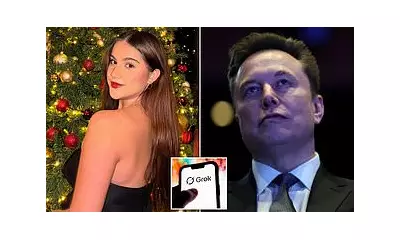
In a move that has sent waves of nostalgia through the digital world, the iconic short-form video app Vine is officially staging a comeback. The reborn platform, now named diVine, is launching with one bold principle at its core: a complete ban on AI-generated content, a rule that has already been met with overwhelming approval from its dedicated fanbase.
The Resurrection of an Internet Legend
diVine aims to recapture the spontaneous and authentic chaos that made the original Vine a cultural phenomenon after its 2012 debut. Long before TikTok dominated our screens, Vine was the home of six-second comedy gold, random acts of internet humour, and the launchpad for a generation of creators.
The app's journey has been a rollercoaster. After its initial success, it was acquired by then-Twitter CEO Jack Dorsey for approximately $30 million (£22 million). However, the platform eventually fizzled out in 2017, largely because creators found it difficult to monetise their content effectively.
Now, Jack Dorsey is backing its reinvention, investing $10 million (£7.6 million) into diVine through his nonprofit. The project is being spearheaded by Evan Henshaw-Plath, known online as Rabble, who was one of Twitter's earliest employees. He is on a mission to return to what he describes as 'real' social media, focusing on genuine human connection.
A Human-First Sanctuary in a Digital World
A key part of the revival strategy involves restoring thousands of classic Vine clips from the original archives. This will instantly transport users back to the era of legendary moments like 'do it for the Vine' and 'I could've dropped my croissant'.
However, the most significant announcement is the platform's staunch prohibition of any AI content. At a time when many social media feeds are flooded with AI edits, filters, and what critics call 'AI slop', diVine is deliberately positioning itself as a sanctuary for authentic, human creativity. The platform will actively flag and block suspected AI uploads before they can ever appear on a user's timeline.
Evan Henshaw-Plath did not mince words when speaking to Business Insider, stating, 'There's this bulls**t that we're seeing from Meta and OpenAI and others where they decided that somehow we're better off with all AI-created social media content. That's not where social media came from. Social media was social first, it's about humans and our connection, not just pretty videos.'
Fan Euphoria and a Clear Alternative
The online reaction to diVine's announcement has been ecstatic. One supporter captured the prevailing sentiment online, writing, 'Vine is coming back and it's going to be anti AI… the world is starting to heal.' Another emphatically declared, 'vine's back and we must protect it at all costs.'
This revival also creates a clear distinction from other proposed comebacks. Months earlier, Elon Musk had teased his own version of Vine, but in AI form. diVine, in contrast, is firmly establishing itself as the human-first alternative.
Evan Henshaw-Plath has articulated a vision for diVine that seeks to recreate the early internet's energy—spontaneous, messy, and unapologetically real. 'I want to show people that we don't need to settle for this dystopia,' he said in a press release. 'With apps like Divine, we can see the alternative.'
If diVine successfully executes its vision, the six-second video format that defined an entire generation of internet culture could once again take centre stage, this time with a renewed commitment to putting human content first.





